Even though electric cars are receiving more positive attention and becoming more common but adoption of it is slow. This is the same for any new technology. The fact is that people don’t trust electric vehicle (EV) technology and have many doubts about its functioning and reliability. There are still many people who simply don’t think EVs can ever replace gas cars. While many automakers are making strides in electrification, it seems most aren’t ready to transition yet.
There are some obvious reasons the public isn’t buying Electric Vehicles (EVs), such as upfront costs, lack of availability, and range anxiety. However, many myths have clouded the segment for some time now. Some of these myths may be valid in certain circumstances or may have been true in the past, but times are changing and technology has improved drastically since Electric Vehicles (EVs) first entered the market.
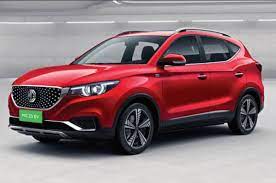
Keep reading to learn why the arguments against EVs are not valid, and to see whether an electric car would be a good choice for you either now, or in the future.
1. How strong is the Electric Vehicle infrastructure in India?
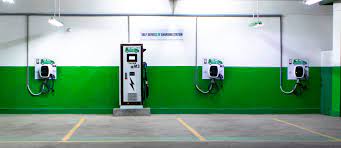
The bitter truth is that the Electric Vehicle Infrastructure is not as strong as the U.S. or Europe. We are currently lacking on the charging infrastructure as there aren’t many Charging Stations in India and also there are not enough superchargers that people can use on road trips.
Also to our disappointment, the Indian Automobile Companies have just taken the baby steps towards the manufacturing of Electric Vehicles and they are just in the testing phase because of which many owners are facing issues with their Nexon EV, Morris Garages EV (MG ZS-EV), and are uncertain about the range and reliability.
2. Affordability
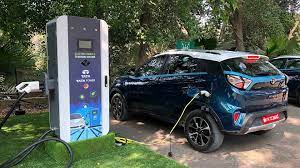
Looking at the current scenario fuel prices have gone to century and for a middle-class man it is not possible to fuel up the car every week depending on his run so many are opting for company fitted CNG Cars or else shifting to EV. There are hardly any choices for the consumer in the Indian Automobile Market to look out for in the Electric Vehicle (EV) segment, Currently, there are only 2 options in the Indian Automobile Market i.e, Nexon EV and Tigor EV. There are a few more EVs in the pipeline which are decently priced. But to the disappointment, these EVs come with a pack of issues i.e, Software Glitches, Battery Issues and Low Range.
There are EVs such as Hyundai Kona and MG ZS EV which are priced a bit higher than Tata’s EV. Also, Tesla is planning to launch its Tesla Model 3 in the market is we believe the rumours they have made certain changes in its Model 3 to make it compatible with the Indian Road conditions but looking at the taxes we believe that it won’t be affordable to buy.
3. Prospect Buyers of EV
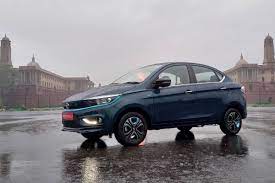
Currently, 2 types of buyers can consider buying an Electric Vehicle. The first is the strict city driver who needs an affordable, low running cost and is only commuting to work for which he will need to charge the car overnight at home or can opt to charge it on service centres and if any breakdown happens it should be easy to reach the service centre. The second one is who is anxious to buy an EV but not as a primary vehicle and has other fuel cars to commute to work or go on a trip.
If you are one among these two then you can surely opt to buy the EV.
4. Tax Benefit

Currently, the Government has announced several schemes for EV buyers to promote the EV Culture in the Automobile Market as an EV is much cheaper to drive and own than a petrol/diesel car. The EVs are also extremely silent and smooth as compared to fuel-driven cars.
Under Section 80EEB of the Income Tax Act, you can avail of tax deductions for interest payments up to ₹1,50,000 on auto loans taken to purchase EVs. This tax benefit is an excellent incentive to consider shifting to this environment-friendly vehicle alternative.
5. Regenerative Braking
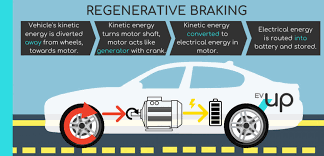
Now, this type of braking is common for all EVs but it is new for Indian Consumers as this depends solely on your driving habit.
Regen Braking is when an EV or a hybrid-powered vehicle is put on brakes or deceleration, energy loss occurs. Regenerative brakes help the energy to travel back to the battery pack. This ensures your EV has more charge left for smooth running.
6. Maintenance
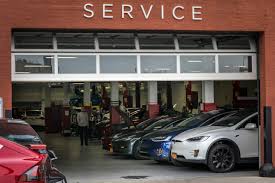
This is the most asked question of the consumer when buying a car be it fuel-driven or electricity-driven. Now you must know that a fuel-driven car has more mechanical parts as compared to EVs so it is very much simple that more the moving parts in a car maximum are the chances of wear and tear or breakdown that ends up in a high maintenance cost. On the contrary, EVs have 80% fewer mechanical parts as compared to fuel-driven so the least are the chances of part failure hence low maintenance.
But It is a known fact that electrical equipment is hard to maintain. The same goes for an EV. The battery of an EV is the expensive part. Any damage caused to the battery will attract a lot of expenses as repair or replacement costs. Repairing or replacing any other parts of the vehicle is also not a cheap deal.
I hope you must be clear now about the EV Technology in India and if it suits you then you can surely go for Tata Nexon EV on a medium budget or else if you have no budget issues then MG ZS EV is worth buying.
Do let me know in the comment section below what are your thoughts on the EV industry in India.


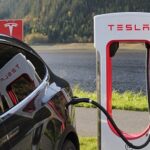

Very good Information
nice info
Nice information